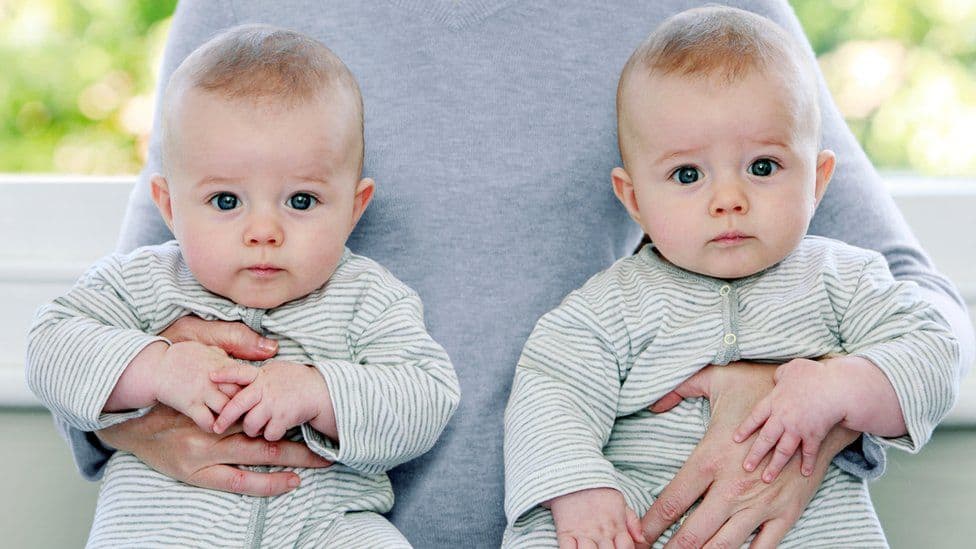
Table of Contents
Introduction: How to get pregnant with twins?
For many couples, the prospect of having twins is an exciting and cherished dream. While conceiving twins is largely a matter of chance, there are certain factors that can influence the likelihood of having a twin pregnancy.
In this blog, we will explore some of the key factors that answers ‘how to get pregnant with twins?’ and discuss natural methods that may increase your chances of conceiving twins. It’s essential to remember that these methods are not guaranteed, and every pregnancy is unique. As always, consult with a healthcare professional before attempting any changes to your lifestyle or pursuing fertility treatments.
How To Get Pregnant With Twins?
Here is the guide for How to get Pregnant fast with Twins:
1. Age and Genetics
One of the most significant factors affecting the likelihood of conceiving twins is age. Women over the age of 30, especially those in their 30s and early 40s, have a higher chance of releasing multiple eggs during ovulation, thus increasing the possibility of conceiving fraternal twins. Additionally, a family history of twins, whether from the mother’s or father’s side, can also raise the chances of having twins, as there might be a genetic predisposition.
2. Ethnicity
Studies have shown that certain ethnic groups have a higher incidence of twins. For example, women of African descent have a higher chance of having twins compared to those of Asian descent. On the other hand, women of European descent have a higher chance of having fraternal twins but a lower chance of having identical twins. While ethnicity can influence the likelihood of conceiving twins, it’s important to remember that this is just one of many factors at play.
3. Number of Pregnancies
Women who have had multiple pregnancies in the past might have an increased likelihood of having twins in subsequent pregnancies. Some studies suggest that the more pregnancies a woman has had, the higher her chances of conceiving twins. However, this is not a universal rule, and individual factors can still play a significant role.
4. Diet and Nutrition
Some research suggests that certain dietary factors may increase the chances of having twins. One such factor is consuming a diet rich in dairy products. The reason behind this is not entirely clear, but it’s believed that the hormones found in dairy products might play a role in stimulating the ovaries to release multiple eggs. However, it’s essential to maintain a balanced and healthy diet overall, as well as discuss any dietary changes with a healthcare professional.
5. Body Mass Index (BMI)
Women with higher BMIs may have a slightly higher chance of conceiving twins. However, it’s important to note that obesity can increase the risk of complications during pregnancy, so it’s crucial to maintain a healthy weight for overall well-being.
6. Previous Use of Birth Control
Some studies have suggested that women who conceive shortly after discontinuing certain forms of birth control, such as oral contraceptives, might have a slightly higher chance of having twins. The reason for this is not entirely clear, but it could be related to hormonal changes after stopping birth control methods.
7. Fertility Treatments
For couples undergoing fertility treatments, such as in vitro fertilization (IVF) or ovulation-stimulating medications, the chances of having twins or even higher-order multiples are significantly increased. During fertility treatments, multiple embryos may be implanted, increasing the likelihood of multiple pregnancies.
How To Conceive Twins With Fertility Drug?
Conceiving twins with the help of fertility drugs is a common approach for couples who are trying to increase their chances of having multiple pregnancies. Fertility drugs are used to stimulate ovulation, which can lead to the release of multiple eggs during the woman’s menstrual cycle.
While these drugs can increase the likelihood of conceiving twins, it’s essential to remember that the process may vary for each individual, and there are no guarantees. It’s crucial to work closely with a fertility specialist to determine the most appropriate treatment plan for your specific situation. Here’s how fertility drugs can help increase the chances of conceiving twins:
1. Consultation with a Fertility Specialist
Before starting any fertility treatment, it’s crucial to schedule an appointment with a fertility specialist. They will conduct a thorough evaluation of both partners’ medical histories, perform necessary tests, and assess your fertility levels. This information will help the doctor determine the best course of action, including the type and dosage of fertility drugs that might be suitable for you.
2. Clomiphene Citrate (Clomid)
Clomiphene citrate, commonly known as Clomid, is one of the most commonly prescribed fertility drugs to induce ovulation. It works by stimulating the release of hormones necessary for ovulation. During a typical menstrual cycle, a woman releases a single egg; however, Clomid can increase the chances of releasing multiple eggs, thereby increasing the likelihood of conceiving twins or more.
3. Gonadotropins
Gonadotropins are injectable fertility drugs that contain follicle-stimulating hormone (FSH) and luteinizing hormone (LH). These hormones directly stimulate the ovaries to produce multiple eggs during the menstrual cycle. Gonadotropins are generally used for women who don’t respond to Clomid or have other fertility issues. The dosage and monitoring of gonadotropin treatment are closely managed by a fertility specialist to minimize the risk of complications.
4. Monitoring and Ultrasound
During fertility drug treatment, regular monitoring is crucial to track the progress of ovarian stimulation. Blood tests are performed to measure hormone levels, and ultrasound scans are used to monitor the growth and development of ovarian follicles (containing eggs). The goal is to achieve the right balance of eggs for a successful conception while minimizing the risk of high-order multiple pregnancies.
5. Timed Intercourse or Intrauterine Insemination (IUI)
Once the fertility drugs have stimulated the ovaries and matured the eggs, timed intercourse or intrauterine insemination (IUI) may be recommended to increase the chances of fertilization. During IUI, sperm is placed directly into the uterus, increasing the likelihood of sperm meeting the released eggs.
6. Managing Risks
While fertility drugs can increase the chances of conceiving twins, they also carry risks, particularly the risk of high-order multiple pregnancies (triplets or more). Multiple pregnancies can be associated with higher risks for both the mother and babies, including premature birth and other complications. As a result, it’s essential to work closely with a fertility specialist who can carefully monitor the treatment and make adjustments as needed to minimize the risk of complications.
Surprise Takeaway! The IVF
Conceiving twins through in vitro fertilization (IVF) is possible and is a common occurrence due to the specific nature of the IVF process. IVF is a fertility treatment that involves fertilizing eggs with sperm outside the body in a laboratory setting and then transferring the resulting embryos back into the woman’s uterus. While IVF cannot guarantee twins, there are certain techniques and considerations that can increase the chances of having twins during an IVF cycle. If you’re interested in pursuing this option, it’s essential to discuss it thoroughly with your fertility specialist, as multiple pregnancies can carry higher risks and complications.
Here are some factors that can increase the likelihood of conceiving twins with IVF:
1. Number Of Embryos Transferred
One of the most significant factors influencing the chances of twins in IVF is the number of embryos transferred into the uterus. If multiple viable embryos are available, the fertility specialist might suggest transferring more than one embryo, increasing the likelihood of twins or even higher-order multiples. However, transferring more embryos also carries a higher risk of multiple pregnancies, so it’s essential to weigh the potential risks and benefits with your doctor.
2. Age Of The Woman
Age plays a role in IVF success rates, and it also affects the likelihood of multiple pregnancies. Older women may be advised to transfer more embryos to increase the chances of successful implantation. Since women over the age of 35 are more likely to have multiple eggs released during ovulation, transferring more embryos might lead to a higher chance of conceiving twins.
3. Blastocyst Transfer
Embryos can be transferred at different stages of development, such as at the cleavage stage (day 2 or 3) or the blastocyst stage (day 5 or 6). Blastocyst transfer involves selecting embryos that have developed further in the laboratory, increasing the chances of selecting the most viable ones for transfer. This technique may slightly increase the likelihood of twins.
4. Elective Single Embryo Transfer (eSET) vs. Double Embryo Transfer (DET)
Some fertility clinics advocate for elective single embryo transfer (eSET) to reduce the risk of multiple pregnancies and associated complications. However, in certain cases where the woman’s age or other factors may affect the chances of success, a double embryo transfer (DET) may be considered to increase the odds of conception, including twins.
5. Assisted Hatching
Assisted hatching is a technique used to help embryos hatch from their outer shell before being transferred into the uterus. It may improve the chances of successful implantation and slightly increase the likelihood of twins.
6. Use of Donor Eggs
Women using donor eggs from a younger woman may have a higher chance of conceiving twins since the donor eggs are typically from women in their 20s or early 30s.
It’s crucial to have a thorough discussion with your fertility specialist about the potential risks and benefits of transferring multiple embryos. Multiple pregnancies carry higher health risks for both the mother and the babies, including preterm birth and other complications. Your doctor will take various factors into consideration, such as your age, medical history, and overall health, to determine the most suitable approach for your specific situation.
Conclusion : How to get Pregnant with Twins
Conceiving twins is largely a matter of chance, and the factors mentioned above are just some of the various elements that may influence the likelihood of having twins. It’s crucial to approach the idea of having twins with an open mind, as well as understand and embrace the unique journey of pregnancy and parenthood. For couples trying to conceive twins naturally, there are no guaranteed methods, and it’s essential to focus on maintaining overall health and well-being during the conception journey.









